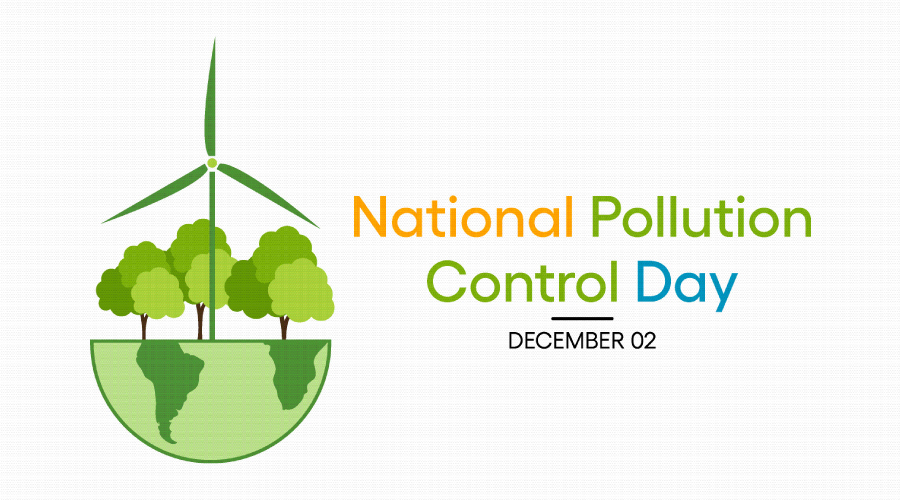

With winters approaching, the air pollution levels in Delhi and other northern cities of India are rising. Delhi and NCR are at a geographical and meteorological disadvantage as far as air quality is concerned. Stubble burning and crackers this time only add to the woes. Air pollution carries harmful pollutants which are responsible for several serious health issues, including respiratory diseases, skin problems, anxiety, obesity, mental health issues, and others.
As per the WHO, air pollution definition includes the contamination of the environment because of multiple agents that end up making unhealthy changes to the environment’s natural properties. These agents or causes of air pollution may be chemical, physical, or biological in nature.
The effects of air pollution on environment are always discussed. However, we need to address and act against its effects on the human body as well. Though it is quite difficult to eradicate air pollution completely, wearing masks, having healthy habits, and adding healthy foods to your diet can reduce the impact to an extent. All you can do is take certain measures to eradicate the effects of air pollution. Read more to get more air pollution information.
Foods to Reduce the Effects of Air Pollution
There are various foods that aid your body against the effects of pollution. Listed below are some of the food options that not only protect you from the harmful effects of air pollution but are also great for your lungs:
1. Vitamin D and Calcium-Rich Foods
Calcium is one of the most important nutrients to make the body function properly. It is mainly stored in the bones. Vitamin D is quite important for absorption of this mineral. Certain scientific reports state that air pollution is linked with deficiency of Vitamin D, most likely due to insufficient skin absorption of UVB. With a right level of vitamin D, the body would be able to fight against air pollution induced health issues. Here are some vitamin D and calcium rich foods that may help you lessen the impact of air pollution.
- Kale, spinach, and other dark green leafy vegetables
- Fish like tuna, catfish, and salmon
- Dairy products like cheese, yoghurt, and milk
- Poultry like eggs and chicken
2. Antioxidant-Rich Foods
Antioxidants are the molecules that can neutralise the unstable molecules in the body. Also known as free radicals, these unstable molecules which are increased in the body due to pollution are responsible for harming cells. Vitamin A, C, and E are some potent antioxidants that are available in the best food for lungs. To avoid the effects of pollution, antioxidant-rich foods are quite helpful. Here are some of them:
- Dark Chocolate
- Blueberries
- Strawberries
- Goji Berries
- Raspberries
- Kale
- Red Cabbage
- Beans
- Citrus fruits
3. Anti-Inflammatory Foods
Anti-inflammatory foods have the potential to decrease the risk of depression, cancer, obesity, diabetes, heart disease, and other diseases that can be induced due to poor air quality. Consume the below foods that have anti-inflammatory properties that are the best food for lungs.
- Fatty fish
- Berries like Blueberries, Blackberries
- Turmeric
- Pepper
- Green tea and coffee
- Mushrooms
- Grapes
- Tomato
- Cherries
4. Foods Rich in Fatty Acids
To protect the body against the detrimental effects of air pollution, we can use foods rich in beneficial fatty acids. Omega 3 and Omega 6 are the most popular as well as healthy fatty acids our body needs. These are very helpful in offering health benefits to the brain and body. Good eye vision, stress reduction, boosting memory, and others are some of them.
Here are some foods rich in fatty acids and healthy lungs food that you must consider:
- Fish like salmon, tuna, merckel, herring, and others
- Seeds like pumpkin, chia, flax
- Oils such as mustard and canola
- Nuts like walnuts, and others
- Fruits like avocado, and so on
- Soybean
- Eggs and caviar
5. Beta Carotene Rich Foods
Beta Carotene is one of the carotenoids that consists of a group of orange, yellow, and red pigments. It is used to promote healthy vision, prevent osteoarthritis; eye issues such as cataracts or macular degeneration; heart issues; cancers; asthma; depression, age-related issues like loose skin; and others. All these diseases can be worsened due to air pollution or poor quality of air.
It is found in fruits and vegetables which consist of intense colours like yellow, orange, green, etc. So, incorporate beta carotene rich foods, which are healthy lungs food as well:
- Carrots
- Apple
- Winter squash
- Beetroots
- Sweet potatoes
- Broccoli
- Cantaloupe
- Lettuce
- Spinach
- Tomatoes
6. Ayurvedic Herbs
Foods rich in antioxidants, vitamins, and minerals are great for fighting against pollutants. But Ayurvedic herbs too are quite helpful to strengthen the immune system and fight against ill effects of air pollution to a good extent. Though these ayurvedic solutions are available as supplements, using them in natural and raw form is quite effective. Along with other nutrients, these herbs are packed with antioxidant and anti-inflammatory properties, building a strong shield against pollutants.
Some of the options in Ayurvedic herbs that may help avoid air pollution causes and effects are:
- Ghee with turmeric
- Neem juice
- Pippali
- Triphala
- Tulsi
- Mint
- Nutmeg
- Galangal
- Ginger
- Spices
Conclusion
We are not safe for a long time if a stringent step is not taken on an emergency basis. Reminding everyone of the horrific Bhopal Gas Tragedy that happened on December 2, 1984, India observes National Pollution Control Day. In this light, the entire nation has to come together to stand in solidarity against the causes of air pollution and work towards building solutions. Till then, stay immune by incorporating these foods and healthy habits in your lifestyle. Additionally, must also take some measures to avoid air pollution effects on the environment to aid sustainable development.
Frequently Asked Questions About Air Pollution
Q1. What are the major causes of air pollution?
Air pollution is caused due to a variety of chemical, biological, and physical factors. Some of these may include:
- Fuel oils
- Emissions from vehicles
- Power plants fueled using coal
- Fuels emitted from chemical plants
- Power generation by-products




